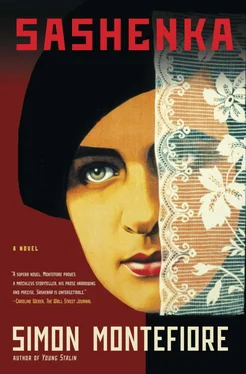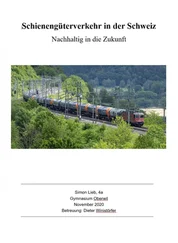Katinka could not help but smile at this. Now she knew that Sashenka had truly loved Benya Golden too. Wasn’t this insult to Golden more romantic than any love song?
Judge Satinov: Comrade Judges, I’m almost overcome with disgust at the evil and depravity of this serpent woman, this black widow spider. Are we ready to consider the case?
Katinka fought back tears as she read this tragic-comic exchange. Did Satinov mean this? Did Sashenka believe he meant it? Sashenka must have looked at her friend, sending him message after message: are the children settled? Are they safe? Or have you betrayed us? A mother’s questions. Katinka lit a cigarette and read on.
Accused Zeitlin-Palitsyn: I must declare before the court that my greatest regret and shame are the crimes I’ve committed before the Party and that the future…posterity…will remember me as a scoundrel.
Posterity? Was this a message to Satinov?
Judge Ulrikh (presiding): All right, are we Comrade Judges ready? Any comment?
Judge Lansky (second judge): What wickedness. No other comment.
Judge Ulrikh: Comrade Satinov?
Judge Satinov (third judge): Accused Zeitlin-Palitsyn confesses to shocking crimes in a lifetime of deception and mask wearing. I must ask the court to forgive me for saying that, due to the vigilance of the NKVD investigation, we the Soviet people are grateful that our brilliant Leader of the Peoples, Comrade Stalin, is safe, that his loyal comrades Molotov, Voroshilov, Mikoyan, Andreyev and other Politburo members are now safe finally from spies, traitors and Trotskyites, safe in their offices and homes from this poisoning viper in their midst. They are now safe, quite safe. There is only one possible punishment, the way we treat mad, rabid dogs, the justice of the people…Thank you, Comrade Ulrikh.
Katinka could scarcely breathe. She read it again, and then again, and it was unmistakable: the sign. Satinov said ‘safe,’ and then repeated it four times in all. Two ‘safe’s for Snowy, two ‘safe’s for Carlo. So Satinov had not betrayed Sashenka. Instead he was really saying, “Dear friend, die easy if you can, the children are safe! I repeat, the children are safe! ”
What relief for Sashenka. Yet the judgment was missing: did she survive after all? There it was, just the same note— Papers sent to Central Committee.
Dawn was coming up over Moscow, as Katinka’s head fell forward onto the transcripts that still rested on her knee.
Judge Ulrikh: Thank you, Comrade Satinov, let us retire to make our judgment.
Judges retire.
An upstart sun in an eggshell-blue sky threw golden beams onto Mayakovsky’s statue. Katinka walked up Tverskaya, first passing the statue of Prince Dolgoruky on one side and then Pushkin on the other, toward the new archive. She had woken up too early and with a crick in her neck when Maxy had phoned, then gone back to sleep. But she still ached as if she had been pummeled and only a bracing double espresso at the Coffee Bean café on Tverskaya—good coffee was one of the benefits of democracy, she thought—had restored some of her spirits.
Carrying a bulky package under her arm, she passed Mayakovsky Metro and took a left through one of those red granite archways that help give Moscow its somber and hostile grandeur. She found herself on a tiny road that seemed to be a cul-de-sac, but just when she could go no farther it turned sharply once and then again, becoming narrower. Katinka relished this unlikely, meandering lane in the midst of the unforgiving metropolis, as if she were discovering a jumbled village behind the granite walls and ramparts of those roaring boulevards. After the second twist, she came upon an ocher wall with a white top and then a black steel gate, which was open and led to some steps. Maxy’s bike was parked next to a plaque engraved with Lenin’s domed profile.
“You look tired—did you get any sleep? You procured what I suggested?” he asked.
Katinka nodded at her package. “It was the most expensive stuff I’ve ever bought and I had to ask Pasha Getman for permission.”
“Three hundred dollars is nothing to him. Did you tell him what it was?”
“I thought it better not to.”
“Well, it’s our only hope. This woman will do anything for that.” Then Maxy took her hand. “I fear you’re becoming even more obsessed than me about the secret lives of fifty years ago. Are you ready?”
“Yes, but how are you getting us in? I thought you said—”
“Don’t worry, I’ve organized it all. Now remember,” he continued, straight-faced, “I booked you an appointment to apply to make an application to apply to peruse the list of documents held in this archive, and I can now inform you that our application to make an application will of course be refused. Go on in, Katinka. Good luck.”
“I feel uneasy about this. Will it work or will I get arrested?”
“One or the other.” He laughed. “Just think, two weeks ago you’d never have tried such a stunt. But be confident. Look as if you know where you’re going and you’re entitled to get what you want. I’ll see you later.”
She watched him kick-start the bike and saw the horned helmet disappear into the hidden lanes before she turned to enter the high Gothic slab with pillars and balconies embellished by heroes carved in stone and bronze.
At the wooden desk, the two teenaged Interior Ministry soldiers half dozed in their battered chairs but sat up at the sight of Katinka. The pimplier of the two conscripts slid the signing-in book along the desk, examined her passport with a sneer intended to project the power invested in him by the Russian state, checked a collage of yellow chits on his desk and found one bearing her name, wrote out another chit on a further badly printed scrap and then with the hint of a virile smirk handed back the paper, keeping the passport, and gestured grandly toward the elevators in the white marble hall behind him. “Application for archives, fourth floor.”
She scarcely dared look back but sensed a presence. A skinny young man with a bald head, yellow vinyl shoes, and a grey parka was hanging up his coat in the cloakroom and watching her intently. A strange crew, these archive rats, Katinka thought, as she hurried on and entered the elevator. As its doors were about to close, a hand held them back and the archive rat came in, nodding at her nervously but saying nothing. He was pulling on his archivist’s stained yellow coat, like a laboratory assistant, his red-rimmed eyes magnified and eager through his smeared spectacles.
The elevator was small and they stood so awkwardly close that the archive rat kept trying to apologize but never quite managed it, as each of his attempts at conversation ended in him starting to hum. Katinka flattened herself against the wall, horribly close to the pasty dome of his head with its sparse colorless hairs, livid blotches and beads of sweat. She pressed the bell for the fifth floor but he pressed the fourth and when the quivering elevator jolted to a halt, the doors opened and he got out, holding them open.
“Your floor.” He wasn’t asking, he was telling her. “Applications.”
But Katinka shook her head twice. The rat looked surprised and remained standing there quizzically as the doors closed. Katinka cringed, knowing she’d been found out because, as Maxy had explained, “outside applicants are not permitted to visit the fifth floor.”
The elevator opened on a landing with misted glass doors, some shabby plastic palms and a grand portrait frame—with no picture inside it. Directorate of the Study of Dialectical Materialism and Leninist Economic-Political Historical Questions of the Soviet Union read the plaque, to which someone had taped a note: The Russian State Archive of Special Secret Political-Administrative Documents .
Читать дальше












